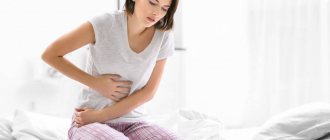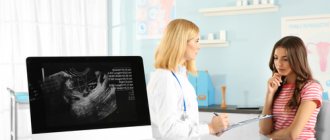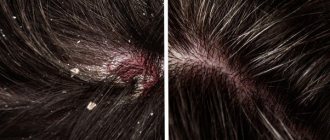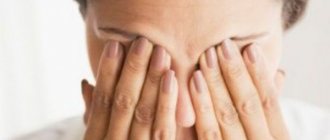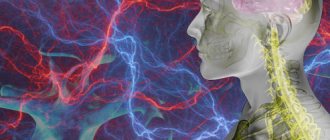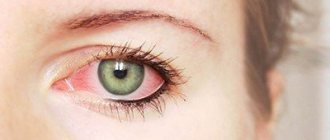Menopause (from the Greek climacter - step of the ladder) is a period of decline in the function of the ovaries (organs in which female reproductive cells mature) and the transition to old age. This is not a disease or pathology, but a natural phase of the life of any woman. There are three stages in the course of menopause: premenopause, menopause and postmenopause.
During premenopause, the ovaries gradually stop producing female sex hormones. As a result, the possibility of conception decreases. This stage can last for several years (from 2 to 10).
Menopause is the last natural menstruation. This period dates back to after a year of no menstruation. Perimenopause is the stage preceding the onset of menopause. At this time, significant changes occur in a woman’s body.
After menopause, a woman experiences the postmenopausal stage, which is characterized by complete loss of ovarian function. Against the backdrop of a reduction in estrogen production, hormonal levels change, the uterine mucosa stops renewing itself, and conception becomes impossible. A woman's body enters a period of aging.
The time of onset of menopause varies from person to person and depends on many factors. However, there are timely (45-55 years), premature (36-40 years), early (41-45 years) and late (over 55 years) types of menopause. In women under 35 years of age, early menopause (failure of the menstrual cycle, the presence of characteristic symptoms) is called “premature ovarian failure.” This pathology can be eliminated by hormonal therapy under the guidance of a qualified specialist.
In a state of stress, aggravated by bad habits and an unhealthy lifestyle, early menopause is quite natural. The situation is aggravated by the presence of chronic diseases. Rapid acceleration also makes its contribution to accelerating the onset of menopause. Over the last century, girls have experienced rapid puberty and the onset of menstruation. Accordingly, ovarian reserves are depleted earlier.
This does not mean that the aging process in women is accelerating! A competent approach to the treatment of early menopause gives a real chance of its reversibility (for a certain period).
Causes of early menopause in women2
With the early onset of menopause, you need to be especially careful about your health, because the causes of early menopause in women also affect other systems of the body.
The main causes of premature menopause are:
- heredity
- autoimmune disorders (diseases in which the body is attacked by its own immunity)
- viral infections
- chemotherapy, radiation therapy, surgery on the female reproductive organs: ovaries and uterus
- smoking, fasting, exposure to adverse environmental factors
In the presence of a genetically determined cause of early menopause in women, two types of “behavior” of the ovaries are observed: they are either completely depleted or are in “sleep mode”. Lifestyle, illness, allergies and external damaging factors have no less detrimental effects on the body, especially in the aggregate. If heredity does not make it possible to prevent early menopause, then other factors can be taken under control by preventing their combination.
Is laser treatment for gynecological problems suitable for all patients?
Laser treatment of gynecological diseases is recommended by an obstetrician-gynecologist in each specific case. As a rule, laser treatment has no special contraindications, but such treatment is not recommended for bleeding disorders, benign and oncological diseases of the pelvic organs, during pregnancy and during the first two months of the postpartum period, as well as during breastfeeding. In other cases, there are usually no contraindications to the use of laser.
You should prepare for laser rejuvenation of the intimate area. To get started, visit an obstetrician-gynecologist. Undergo an ultrasound of the pelvic organs, and also take the following tests: ● a smear on the flora to exclude an inflammatory process; ● smear for oncocytology; ● test for STIs – to exclude the presence of sexually transmitted infections; ● HPV test – to exclude the presence of human papilloma of high oncogenic risk; ● general blood and urine tests, as well as an analysis of blood sugar levels.
Symptoms of early menopause in women3
It is traditionally believed that only the genitals and mammary glands suffer from menopause. However, the changes affect the entire body, in particular the cardiovascular, musculoskeletal, urinary, nervous systems, intestines, skin and hair.
Symptoms of early menopause in women include:
- tides
- decreased libido
- headache
- excessive sweating
- insomnia, mood swings, depression
- dulling of attention and memory
These signs can greatly impair the quality of life, so they need to be dealt with, and the first step to eliminating them is examination by a doctor. During menopause in women, the risk of heart attacks, strokes and other pathologies of the cardiovascular system increases sharply. Pigment spots, wrinkles and excess fat deposits appear on the abdomen and thighs. As estrogen levels decrease, women may develop osteoporosis and diabetes mellitus (usually type 2).
Early menopause requires an integrated approach to treatment, which can only be provided by a qualified specialist. A visit to him should not be postponed. The sooner the range of problems caused by early menopause is identified, the higher the likelihood of their successful resolution.
Developing intellectually
Both before menopause and during menopause, it is very important to continue to grow, including intellectually. The idea that as soon as a person stops moving forward, he slides back is very true. The brain is not the last most important organ in our body, and the more it is loaded - again, for pleasure - the better the general condition of the body.
There are many applications for brain training, for example, www.cognifit.com. Download a couple to your phone and practice for 15 minutes a day.
Treatment of early menopause in women: therapy and diet4
Simple rules of a healthy lifestyle can help reduce unpleasant symptoms and prevent the development of dangerous pathologies during menopause: at least 8 hours of sleep a day, walks in the fresh air, hardening and physical exercise, as well as giving up bad habits. Massage, physiotherapy and physical therapy have a positive effect on the perception of menopause: such simple methods should not be underestimated, especially in combination with therapy prescribed by a doctor.5
Psychotherapy is an important part of overcoming menopause. In a society where youth is valued above maturity, women perceive early menopause as tragic. They look at the prospect of old age with aversion, afraid of losing their sense of self-worth. In this context, it is very important to understand and accept the inevitable fact of aging, and with it to gain confidence that the value of the individual and his place in society remains with him, despite age and loss of fertility.2
With a diagnosis of “premature ovarian failure,” which, in essence, is what early menopause is, it makes sense to restore the menstrual cycle and reproductive function. For this purpose, the specialist prescribes hormonal medications to maintain estrogen levels. You cannot take such medications on your own and without consulting a doctor: the doctor must conduct an examination, obtain test results, and only after that individually select the drug that is suitable for you.6
Diet plays a fairly important role in the treatment of early menopause. Special diet therapy is the prevention of problems, the predisposition to which increases every year.
During menopause, women are advised to adhere to the following rules:7
- Adhere to a fractional diet: divide meals into 5-6 times a day, avoiding overeating.
- Avoid late dinner.
- Monitor your caloric intake. In total, it should be no more than 1700-2000 kcal per day.
- Balance the composition of the diet: exclude or at least limit easily digestible carbohydrates (sweets, snacks), reduce the consumption of animal fats. At the same time, it is important to enrich the menu: women during menopause need a lot of calcium, fiber, and “live” vitamins. Calcium-containing foods should be included in your daily diet. The norm for a woman under 50 years of age is 1000 mg of calcium per day. Including fresh vegetables, fruits, and whole grains in the menu will provide the body with fiber, which helps cleanse it and prevent constipation. Of course, it is preferable to get vitamins from foods, but taking vitamin preparations will only be beneficial in this case. Vitamins A, C, E, as well as iodine, selenium, copper, and calcium are especially important for women during menopause.
How long does menopause last?
Menopause can last several years. This is an individual question for each of the ladies. According to the duration of menopause, it can be divided into three periods:
- premenopausal period - menstrual irregularities occur,
- perimenopausal period - the last menstruation begins,
- postmenopausal period - occurs one year after the last menstrual bleeding.
Ladies may experience each of these stages differently. Symptoms that occur during these periods may vary in frequency and intensity.
Sex and menopause4
Decreased libido, irritability, dryness and burning of mucous membranes, discomfort during sexual intercourse are typical symptoms of menopause. However, sexual relations are necessary to maintain women's health during this period. sexual intercourse improves blood circulation in the reproductive organs, ensures the release of pleasure hormones, helps cope with depression and maintain fertility, which is especially important if early menopause is observed.
With the decline of ovarian function, the pH balance in the vagina gradually shifts towards more alkaline, depriving the body of local protection and opening the way for bacteria. That is why it is important for a woman to use intimate hygiene products that help bring the pH balance to a normal acidic state. Hygienic procedures for the genitals using ordinary soap or gel are unacceptable in this situation. Such products with an alkaline composition can significantly increase vaginal dryness. Special gels and foams for women's intimate hygiene, as a rule, contain lactic acid - a mild moisturizing and acidifying ingredient that is optimally suited for this purpose.
Topically applied products - gels for intimate hygiene, special creams and ointments that moisturize mucous membranes - will help to avoid discomfort, dryness and burning during sexual intercourse. Some of them contain a hormonal component to provide additional support to the body of women experiencing early menopause.
From the inside, most of the unpleasant symptoms of menopause can be neutralized by taking hormonal medications or birth control pills. Hormone therapy is a responsible procedure that should only be performed under the supervision of a specialist. A qualified doctor must carefully study the woman’s data, conduct the necessary research, and, based on the information received, prescribe a specific drug, dose and regimen.8
Increasing stress resistance
The fact that our time is “a time of stress and passion” was known fifty years ago. The speed of life has not decreased since then, we are always running somewhere, doing a hundred things at the same time and driving ourselves into stress traps.
To fight it, it is worth adopting several techniques.
- Don't think about the white monkey
. This often seems impossible, but try not to dwell on your difficulties and problems and get distracted. For a book, a movie, chatting with friends.
There is an effective way: set aside an hour a day specifically to think about the problem that worries you. And make sure that during this hour you think only about her. But the rest of the time, drive her away. After some time, you will learn to “turn on” and “turn off” thoughts about it - then you can begin to reduce the time allotted for thinking about the problem. And, of course, try to solve problems as they arise, and not think about them for days.
- Let off some steam
. You can harbor resentment within yourself, but it will not increase your resistance to stress and certainly will not help you get rid of it. Beat a pillow, break a cup (in Japan they even sell special cheap dinner sets designed for breaking in the heat of family quarrels), watch a comedy or, conversely, a thriller. In general, anything that will give vent to anger, resentment, irritation.
- Rest. Get plenty of sleep
. On vacation, don’t sit at home or in the country, change your surroundings. If it is not possible to go to the sea, a lake in the forest or a walk around your hometown in good friendly company will do.
- Take yourself on a date once a week
– wherever you want: to the cinema, to a concert, to the theater, or just for a walk. Only two things are important: that no one bothers you, and that you have fun and interesting.
- Write
. Writing down everything that worries you is also a kind of meditation. The written down problem acquires boundaries, a beginning and an end, and ceases to be a terrible obstacle in your path.
Treatment with herbal preparations8
In a situation where early menopause cannot be corrected with hormonal therapy, the doctor may recommend that the woman take herbal medicines. Such drugs are less effective and do not have the systemic effect necessary to prevent bone fragility, cardiovascular pathologies and other serious conditions associated with a deficiency of female hormones during menopause. They can slightly reduce the intensity and frequency of hot flashes. Herbal origin makes these drugs safer. However, you should not give preference to taking phytoestrogens if there are no contraindications to hormonal therapy, but there are symptoms of menopause that worsen the quality of life.
Some plants contain phytoestrogens, hormone-like compounds that can also help women going through menopause. They are found in significant quantities in soybeans, red clover, and flax seeds. Red clover is most often used to make herbal medicines. It contains several types of compounds similar in structure to the hormones of the female body.
Early menopause is an unpleasant condition, but not a death sentence. If menopause comes early, a woman has the opportunity to restore the menstrual cycle and reproductive function.
You will need the help of a specialist and hormonal therapy. It is important not to miss the moment, not to hope that the problem will resolve itself and not to delay contacting a specialist. A complete examination and timely treatment are fundamental factors for the successful prevention of early menopause. Find the right specialist here.
It is also important during this period to take care of your health and positive attitude, to maintain activity and relationships with the opposite sex. Remember that menopause is simply an inevitable stage in the life of every woman, which, with an optimistic attitude, can be overcome with dignity and with minimal difficulties.
Womenfirst
- Gevorkyan M. A., Manukhin I. B., Kazenashev V. V. Experience in the use of hormone therapy for menopausal disorders // Farmateka. – 2006. – No. 2. – P. 34-8.
- Tatarchuk T. F., Efimenko O. A., Tutchenko T. N. Stress and involution of the woman’s reproductive system // Women’s reproductive health. – 2007. – No. 5. – pp. 153-157.
- Ovsyannikova TV et al. Drug treatment methods for patients with vasomotor symptoms of menopause. – 2010. P. 75-77.
- Dyukova G.M. Quality of life of a woman during menopause // Attending physician. – 2003. – T. 1. – P. 48-50.
- Ovsyanik O. A. The role of physical culture with elements of impact contact martial arts in the adaptation of women of the second period of maturity (40-60 years) // Scientific notes of the University. PF Lesgafta. – 2011. – T. 79. – No. 9.
- Gynecology T. B. Menopause: age-related changes and methods of their correction // Russian Medical Journal. – 2007. – T. 15. – No. 17. – pp. 2-4.
- Vorontsova A.V., Zvychayny M.A., Mityashina A.M. Woman, menopause and aging // Experimental and clinical dermatocosmetology. – 2012. – No. 5. – pp. 51-56.
- Smetnik V.P., Karelina S.N. Alternative ways to correct menopausal disorders // Menopause. – 2004. – T. 4. – P. 3-6.
RUFMS181757 from 04/27/2018
How is MONA LISA TOUCH laser treatment performed?
The procedure is no different from a regular examination by a gynecologist. You sit comfortably in our gynecological chair, and the doctor gently inserts the laser device into the vagina. Your sensations will be simple and pleasant - you will only feel slight warmth and slight vibration of the device. The procedure lasts no more than 5 minutes. After which you can safely return to your business and usual responsibilities. Minor restrictions in the first week after the procedure are imposed only on intimacy and physical activity.
Menopause is not a death sentence if you have experienced doctors and the best equipment next to you. Contact a medical doctor and live a full life!


